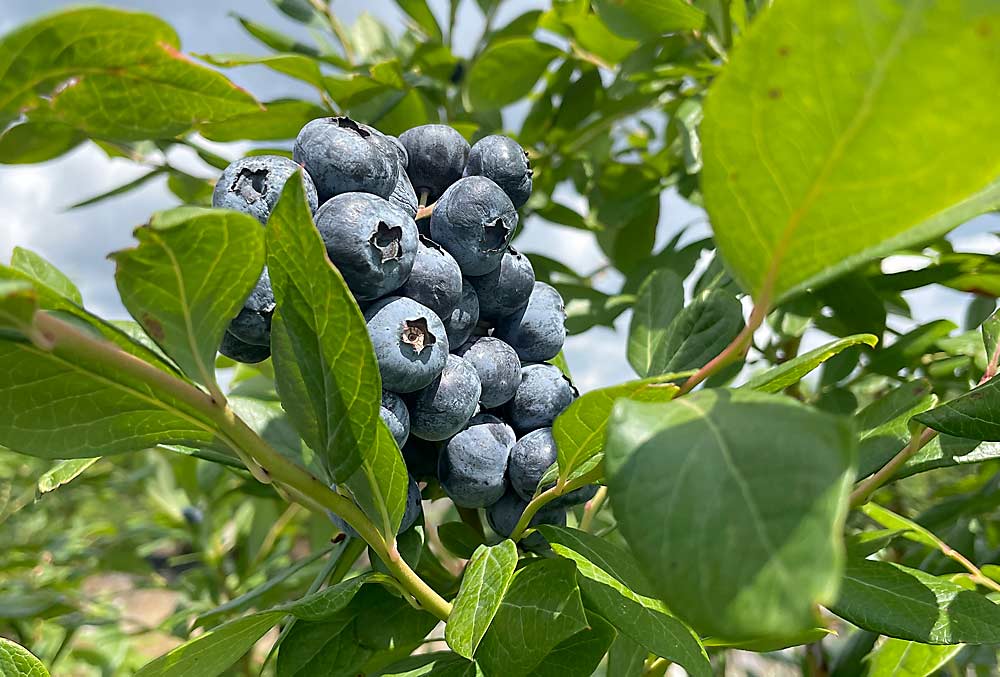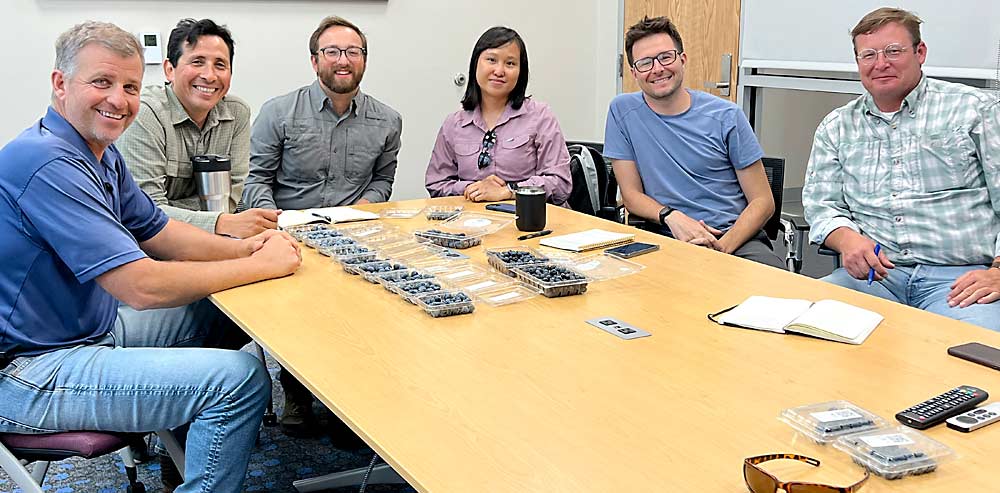
There’s a late-season quality gap in Southeast U.S. blueberry production, and two breeding programs, one public and one private, have partnered to fill it.
The University of Florida’s blueberry breeding program and private breeder Berry Blue, a subsidiary of MBG Marketing, announced a research agreement earlier this year to develop late-season southern highbush blueberry varieties.
The Southeast’s late-season harvest window, roughly June through July, is dominated by rabbiteye varieties — a native species that hasn’t kept up with the quality of newer releases.
Ryder Godfrey, a Georgia blueberry grower and MBG board member, said breeding efforts in the Southeast have mostly focused on improving early-season southern highbush cultivars. He and other Southeast growers need better late-season berries. They also need berries that are machine harvestable, as hand labor availability continues to dwindle.
“The MBG and University of Florida collaboration could be a game-changer for the entire blueberry industry,” Godfrey said. “It’ll be fun to watch what the program produces.”

UF blueberry breeding goes back to the 1940s, when researchers started crossing northern highbush cultivars with native Florida Vaccinium species, resulting in southern highbush cultivars. The program has released more than 100 varieties over the years, with an emphasis on low-chill, early-ripening cultivars adapted to Florida’s climate. But the Southeast’s biggest blueberry producers, Georgia and North Carolina, have higher chill requirements than Florida, and a later season, said Patricio Munoz, UF associate professor and blueberry breeder.
A number of selections already in the UF breeding pipeline would fit the late-season window, he said. Per the research agreement, Berry Blue will provide funding and land for trials while UF will do the breeding and genetics research, with input from MBG.
MBG Marketing, a grower-owned cooperative based in Michigan, is the largest producer and shipper of fresh blueberries in the United States. MBG growers provide a steady supply of blueberries from spring through fall, starting in the Southeast and working their way north. UF southern highbush releases dominate early season Southeast production, due to their high yields, pest and disease resistance, machine harvestability and outstanding fruit quality and flavor. MBG’s long-term goal is to provide its Southeast growers with late-season southern highbush cultivars of comparable quality and fill a crucial sales window with better berries, MBG CEO Brad Moorer said.
Berry Blue was one of the first private blueberry breeding companies, but today there are nearly a dozen. Developing superior blueberry varieties has become “somewhat of an arms race,” Moorer said. Low-cost imported fruit is putting pressure on the domestic industry. Newer industries in foreign countries aren’t “saddled with legacy genetics” like U.S. growers are, he said.
“We’re playing catch-up to a certain extent in the U.S.,” Moorer said. “Top retailers are telling us that consumers want U.S. fruit, but we have to do our part. They can’t pay higher prices for inferior quality.”
Munoz said UF southern highbush releases such as Emerald, Sentinel and Optimus are known for their high yields and fruit quality and are grown throughout the Southeast, but their harvest times don’t fit the late-season window. Legacy, a late-season southern highbush variety, has decent yields but its fruit quality is lacking.
Moorer expects to see a steady stream of new releases for the late-season southern highbush window in the next few years. Florida growers will have access to the UF/MBG releases, but access outside of Florida will be exclusive to MBG growers. The new berries will be sold under the Naturipe brand, he said.
The MBG agreement isn’t a deviation from UF’s mission to serve Florida growers, Munoz said, but rather will give the program greater resources and keep it connected to the global blueberry industry.
“If we can develop higher-quality and more profitable varieties, it’s a win/win for everybody,” he said.
—by Matt Milkovich







Leave A Comment